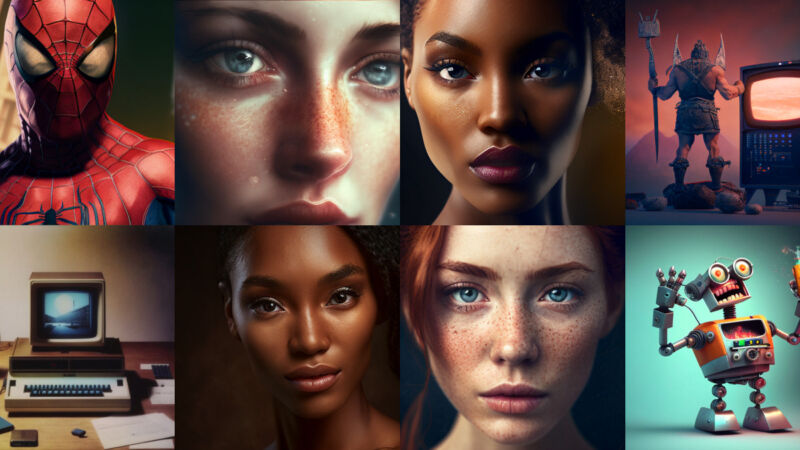advertisement
How Generative AI Is Revolutionizing The Creative Landscape

In recent years, the world of artificial intelligence (AI) has witnessed remarkable advancements, and one area that has garnered significant attention is generative AI.
Generative AI refers to a branch of AI that focuses on creating new and original content, such as images, music, text, and even entire virtual worlds. With its ability to generate realistic and creative outputs, generative AI is revolutionizing industries, inspiring new possibilities, and pushing the boundaries of human imagination. Talk of AI image generator the Midjourney which has awed users with its ability to generate high-quality images from natural language descriptions, called “prompts.
Generative AI has the unique capability to mimic human creativity and generate content that appears to be crafted by a human artist, composer, or writer. By learning from vast amounts of existing data, generative AI algorithms can understand patterns, styles, and structures, allowing them to create new content that adheres to these learned characteristics. This technology has significant implications for various domains, including art, design, music, and storytelling.
advertisement
In the world of art, generative AI is enabling artists to explore new frontiers and push creative boundaries. Artists can use generative AI tools to generate visual compositions, textures, and even entire virtual landscapes. This technology empowers artists to experiment, iterate, and discover new artistic expressions, leading to unique and captivating creations. Moreover, designers are leveraging generative AI to generate innovative product designs, architectural concepts, and fashion trends, fostering a new era of creativity.
AI-generated songs have been popping up on streaming services. Musicians and composers can use generative AI algorithms to create melodies, harmonies, and even entire compositions. By training the algorithms on a vast library of musical works, generative AI systems can generate original pieces in various styles and genres.
Generative AI is transforming the way stories are told and content is created. With the ability to generate realistic text, generative AI algorithms can assist writers, journalists, and content creators in generating drafts, brainstorming ideas, and even automatically generating news articles. This technology offers a novel approach to content creation, providing a starting point for human creatives to refine and shape the generated material.
advertisement
While generative AI presents tremendous opportunities, it also raises important ethical considerations. For example, ethical issues have been raised regarding AI-generated content. Music companies around the world are becoming increasingly concerned about AI bots using their songs to train themselves to produce music that mimics popular artists. Universal Music Group (UMG) reportedly told streaming platforms, including Spotify and Apple to block AI services from scraping melodies and lyrics from their copyrighted songs.
Ensuring that generative AI systems are used responsibly and do not infringe on intellectual property rights or perpetuate bias and discrimination is crucial. Striking the right balance between human creativity and generative AI assistance is vital to preserving the integrity and authenticity of creative works.
advertisement